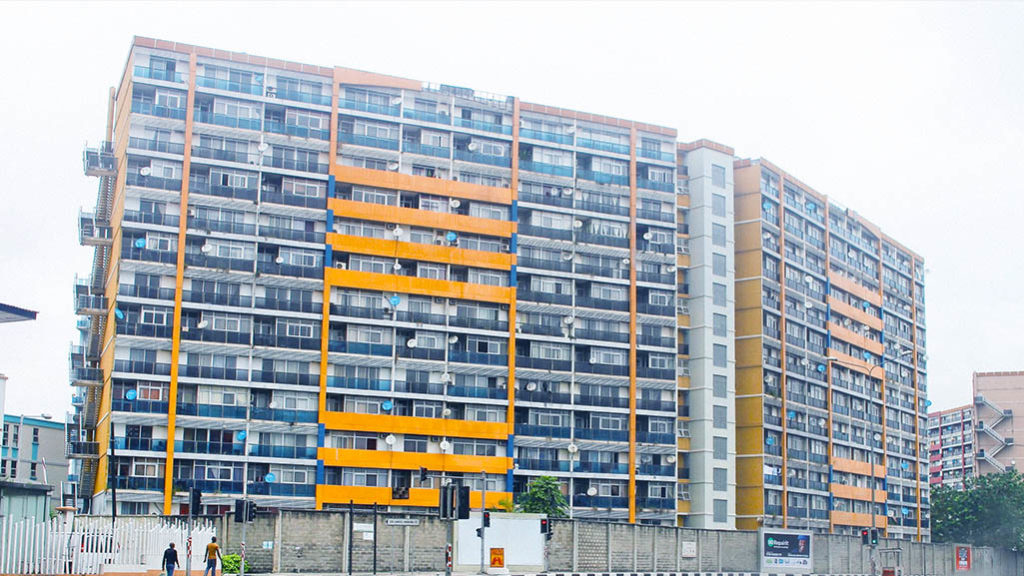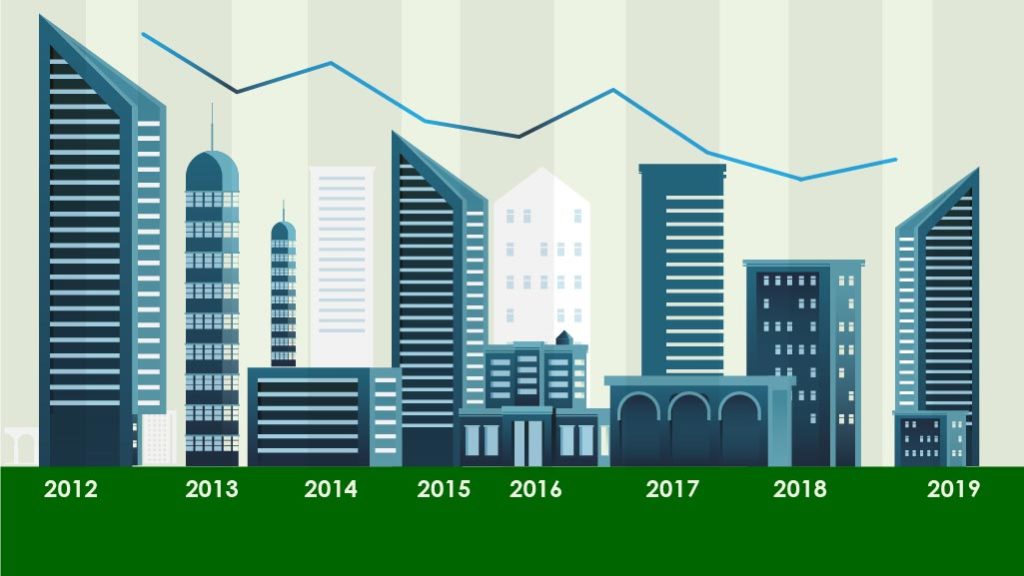
Real Estate is one of Nigeria’s largest non-oil sector contributors to GDP, with close to six per cent contribution as at Q2 2018, according to data from Nigeria Bureau Statistics. Other Real Estate-related sectors that also did well are construction – with growth rate of 7.66 per cent in Q2 2018 from -1.54 per cent in Q1 2018; and cement and wood – growing by 3.8 per cent and 2.23 per cent from Q1 2018 figures respectively.
With these impressive figures, analysts expect that the sector will pick up in 2019, notwithstanding being an election year. Whatever the results are at the end of this year, here are 5 Economic Factors To Impact Real Estate Post-Election, according to Femi Akintunde, Alpha Mead Group Managing Director;
1. OIL REVENUE:
Despite diversification efforts by the government, oil is still the major foreign exchange earner for the country; hence “the activities of the oil sector, positive or negative, will always have impact on all sectors of the economy, including Real Estate”, said Femi Akintunde.
He furthered: “So, oil revenue will be critical to what happens in 2019. The impact will be from two sides; the production level and at the price level. Present global price of oil is between $65 and $70. Some observers have projected that in 2019, prices will appreciate. In the event of that, Nigeria’s projection at $60 benchmark for budget planning is over-estimated. For budgeting purpose, there should have been a $10 reduction against prevailing price.
The impact of global oil benchmark and OPEC quotas is an important issue to consider; Nigeria has not been factored into global oil cuts in previous years, but now OPEC has asked the country to cut oil production as well. From about 2.1 million barrel per day, Nigeria is to cut to about 1.685 million barrels. The effect of that cut is going to be significant, putting a lot of strain on our already challenged economy which may result in further crash in the value of naira.
2. POLITICAL STABILITY:
The year 2019 is a special and strategic year in Nigeria, in view of the general elections. As expected, the fortune of the business sectors would depend largely on the economic and political activities around the elections. Typical of elections year, there’s going to be a lot of uncertainties in the business environment, which will also affect real estate market.
In addition, if a different government emerges, there’s likely going to be some major changes and policy reversal. Should that happen, it will affect both foreign-direct and local investments in Real Estate. This is because government policies are often driven by political undertone and sentiment, rather than economic realities. This is counter-productive and it’s not what the business community wants.
3. THE MACRO-ECONOMIC ENVIRONMENT:
The macro-economic environment in Nigeria is going to be determined by a lot of factors. Inflation rate is currently in the range of 11% and above; and it is projected that it’s may be heading to 13% in the coming year. What that automatically portends is that the real value of investment is going to be discounted by the increased inflation index.
So, considering the budget of N8.6 trillion for the current fiscal year, one must discount that by 13% in terms of value that it can actually deliver at the end of the day. Therefore, that further depresses the revenue and is taking us further into deficit budget.
s the government on the one hand strives to manage the economy, inflation may be further triggered by heavy spending as a result of the elections because there’s more money than usual in the system. There’s also the clamor for wage increment by the labor unions, on another hand. The outcome of that is likely to put more pressure on inflation. And if that happens, prices of commodities will go up, including materials for real estate.
4. ECONOMIC INFRASTRUCTURE:
The current economic infrastructure in Nigeria is below where it should be, no doubt. A lot of the infrastructure in the country is comatose. Government must, as a matter of priority, pay close attention to infrastructure such as power, rail and roads.
We must strategize and develop an effective power management system that is realistic for our society. If the government can review the strategy, introduce policies that will support power supply on a strategic line, explore other viable options for power generation, like gas and solar systems, the economy will soar.
Today, a high per cent of service charges today goes towards taking care of power, be it corporate or residential buildings. Most families and businesses spend more on power – buying fuel, servicing and maintaining generators, than on any other thing.
Another economic infrastructure that we must not overlook is road infrastructure, which is also important to the real estate industry. We do not have enough and quality roads, and this is affecting the interconnectivity of cites. This is one of the main factors for rural-urban migration, leading to a high concentration of more of the population within a small area.
The housing demand is mostly in the cities; there are a lot of vacant houses and lands in rural areas, but people keep moving to the cities. This must be addressed. The government needs to strategically look at that and devise a way to improve infrastructure.
However, the need to build more roads is as important as maintaining the already existing roads. A lot of the roads are deplorable, and this is quite a setback for real estate. Then again, there are other means of transportation that the government can explore to take congestion off the roads. Once these are addressed, the impact on the real estate industry will be significantly positive.
5. SOCIAL INFRASTRUCTURE:
Security is very important for the government to address. While government is currently focused on politics, security is relapsing. Incessant violent clashes and terror attacks send negative signals to the international community and investors as to the environment in which their investment is going to be operating.
If your environment is not conducive for both foreign and local investments, it is going to have a negative impact on capital inflow to that economy. Security in the Niger-Delta is vitally important. With the reduction in OPEC quota, we cannot allow the militants to go haywire and begin to cause trouble in the region as before. If that happens, it will reduce our production capacity further and that has the potential to bring the economy to its knees.
Also, worth mentioning is the legal process in Nigeria. There are a lot of hazy and ambiguous areas to consider when it comes to legal provisions. For instance, there’s the issue of ‘Land Use Reform Act’, which is still very serious, and it is impacting the sector negatively. Processing and obtaining relevant documents is quite a tedious process in Nigeria. We have C-of-O taking as long as two years to obtain; the implication of that is if you do not have legal titles, you cannot raise mortgage for people. And without that, you cannot get finance. So, the government would do well to look into this area and make land acquisition process more efficient and more transparent.






About The Author: Alpha Mead
More posts by Alpha Mead